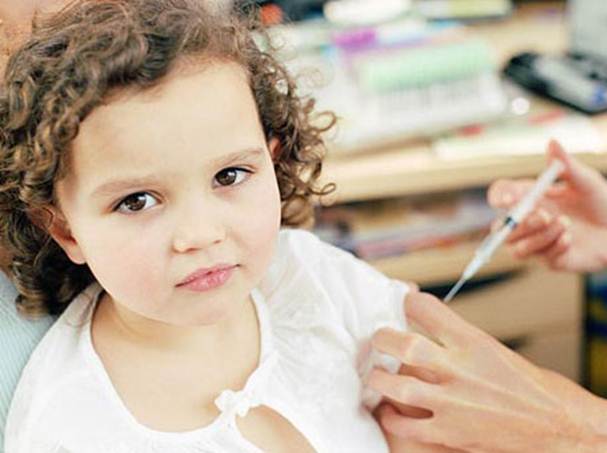Don’t
sugarcoat it.
Explaining diabetes and the impact it will
have on your child’s life isn’t an easy conversation for parents, but it’s
necessary. For young children, keep the story simple: They need this medicine
to make them better. Be sure to balance the seriousness of the disease with
hope. “Type 1 diabetes requires meticulous care, but people with type1 diabetes
do very well,” says Maahs. He tells his pediatric patients about famous people
with diabetes to underscore the fact that diabetes isn’t limiting. And kids may
believe they’re responsible for their disease, so it’s important to reassure
them that diabetes is not their fault.

Don’t
sugarcoat it
As kids age, it’s vital you continue to
inform them about their disease. “Be honest and truthful about things with the
older kids,” says Gee. “Say, ‘You know, this isn’t going to be easy. Sometimes
this is going to be hard, but we’re going to stick together and we’re going to
get through it.’ ”
Give feedback on the plan. Checking blood
glucose levels, injecting insulin, carbohydrate counting, and treating highs
and lows as your doctor ordered are the main goals directly after your child is
diagnosed. But the starting treatment plan is just a guideline. While doctors
have formulas that predict the best insulin dose and carbohydrate allotment for
people with diabetes, getting it just right is a process that requires frequent
discussions with your health care provider. “It’s a lot of communication,
especially with a new diagnosis during the first few months,” says Nimmo. “It’s
a lot of work, it’s a process. But it can all be worked through.”
In the Near Future
Do
your research.

Do
your research
Newly diagnosed kids usually spend several
months receiving insulin injections before their doctor will consider putting
them on an insulin pump, but you don’t have to wait that long to learn your
options. The major differences between shots and a pump (besides cost and the
number of pokes): Your child will have more flexibility – without extra shots –
in when and what to eat, you can enter formulas to dose insulin with greater
precision and less math, and there’s less risk of hypoglycemia.
Involve
the whole family.
Regardless of who is diagnosed, diabetes
will affect your entire family – as it should. “It’s really important for
everyone to be on board,” says Gee. Your young child’s siblings might not need
to play an integral role in day-to-day diabetes care, but it’s important they
understand the disease, respect any dietary changes the family needs to make,
and can help their sibling in an emergency.

Regardless
of who is diagnosed, diabetes will affect your entire family – as it should.
Because the disease can be isolating, it
helps if family members experience some of the scarier aspects of diabetes
alongside the child. “If there are other siblings, let them [test their blood
glucose], too, so they know what the child is going through,” says Barbara
Maslaney, RN, BSN, CDE, a diabetes educator at Seattle Children’s Hospital.
Maslaney says having her siblings experience blood glucose testing was
important for her as a young child with type1 diabetes.
Support
each other.
Dealing with your child’s diabetes
diagnosis can be an emotional drain, but it’s easier to handle when your
partner or another loved one is carrying some of the load. When things get
hard, remember that you’re on the same team. Maxwell says the diagnosis is a
challenging event, but it can also bring families closer.
Join
the community.
Diabetes can be a lonely disease if you let
it. But there are plenty of ways to connect with other parents of children with
diabetes, whether it’s through a support group at your hospital or an online
forum like ChildrenWithDiabetes.com or the American Diabetes Association’s The
Place for Parents (diabetes.org/messageboards). “The number of questions
that arise can be so overwhelming,” says Maxwell, who started Juvenation.org, a
type1 community created by the Juvenile Diabetes Research Foundation. “The most
helpful thing was being able to reach out to others, even if it was just
confirmation that we did the right thing.”

“The
most helpful thing was being able to reach out to others, even if it was just
confirmation that we did the right thing.”
Take a deep breath. Don’t worry if you’re
completely overwhelmed or feel as if you’ll never figure this diabetes thing
out. Keep contact with your provider, who has many resources for you and your
family, ranging from support groups to mental health specialists. Even the most
knowledgeable parents of kids with diabetes struggled in the beginning. “If you
feel like you’re going through a million different emotions, from elation to
grief, you’re not crazy,” says Rose. The good news? It gets easier. “Right now
it seems like you’re not making any progress in knowing what’s going on, but in
a week you’ll see the baby steps you’ve taken,” says Gee.
Most of all, know that diabetes doesn’t
have to control your life. “There is life besides diabetes,” says Nimmo. “You
can get past it, and you can get through this.”